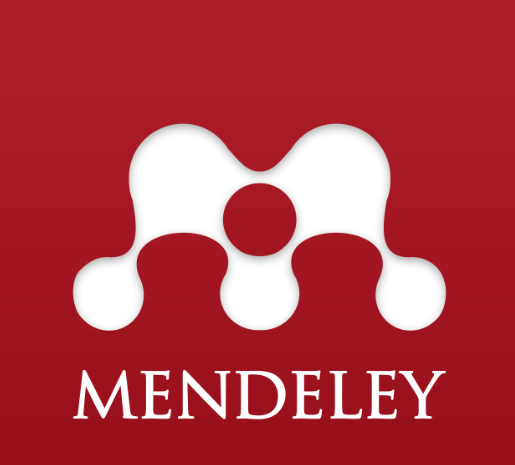INFLUENCE OF EMPLOYEE ENGAGEMENT AND ORGANIZATIONAL CULTURE TOWARDS EMPLOYEE PERFORMANCE
DOI:
https://doi.org/10.22219/jmb.v9i2.7939Keywords:
Employee Engagement, Organizational Culture, Employee PerformanceAbstract
Human resources (HR) have a very important role in an organization.Of course, by processing good human resources can drive the performance of an organization. This research was conducted at PT. XYZ, a company in the telecommunications sector in Indonesia. The purpose of this study is to determine the application of employee engagement, organizational culture conditions and performance at the company. The method used in this study is a quantitative method. This research is descriptive and causal research. The population in this study were employees of the PT. XYZ. Data analysis in this study used descriptive statistical analysis, normality test, multicollinearity test, heteroscedasticity test, and multiple regression analysis. The findings in this study concluded that employee engagement and organizational culture had a positive and significant influence partially on performance. In addition, it can be concluded that employee engagement and organizational culture have a significant simultaneous influence on performance.
Downloads
References
Al-Dalemah, Masa’deh, Abu Khalaf dan Bader Yousef. (2018). The Effect of Employee Engagement on Organizational Performance Via the Mediating Role of Job Satisfaction: The Case of IT Employees in Jordanian Banking Sector. 17-18.
Bekker, Arnold B Leiter dan Michael P. (2010). Work Engagement A Handbook Of Essential Theory and Research. USA:Pyschology Press.
Bintoro, Daryanto. (2018). Manajemen Penilaian Kinerja Karyawan. Yogyakarta: Gava Media.
Edison, Anwar dan Komariyah. (2016). Manajemen Sumber Daya Manusia (cetakan kesatu). Bandung :Alfabeta.
Fahmi, Irhan. (2016). Manajemen Sumber Daya Manusia (Teori dan Aplikasi). Bandung: Alfabeta.
Federman, Brad. (2009). Employee Engagement A Roadmap For Creating Profits, Optimizing Performance, and Increasing Loyalty. USA : Journey Bass.
Indrawati. (2015). Metode Penelitian Manajemen dan Bisnis: Konvergensi Teknologi Komunikasi dan Informasi. Bandung: PT. RefikaAditama.
Muhammad Jasim Uddin, Rumana Huq Luva dan Saad Md. Maroof Hossian. (2016). Impact of organization culture on employee performance and productivity : A case study of Telecommunicaation sector in Bangladesh.
Obinna Paschal, A.O dan Nizam, Ismail. (2016). Effect of organizational culture on employee performance : case singapore telecommunication.
Santosa, Paulus Insap. (2018). Metode Penelitian Kuantitatif (Pengembangan Hipotesis dan Pengujiannya Menggunakan SmartPLS). Yogyakarta: CV. Andi Offset.
Schiemann, W.A. (2011). Alignment, Capability, Engagement: Pendekatan Baru Talent Management untuk Mendongkrak Kinerja Organisasi (1st ed.). Jakarta: PPM Manajemen.
Sedarmayanti. (2017). Perencanaan Dan Pengembangan SDM Untuk Meningkatkan Kompetensi, Kinerja, Dan Produktivitas Kerja. (cetakankesatu). Jakarta: RefikaAditama.
Sunyoto, Danang dan Burhanudin. (2015). Teori Perilaku Keorganisasian (Dilengkapi Intervensi Pengembangan Organisasi). Yogyakarta: CAPS (Center of Academic Publishing Service).
Timotius. (2017). Pengantar Metode Penelitian: Pendekatan Manajemen Pengetahuan Untuk Perkembangan Pengetahuan (edisi kesatu). Yogyakarta: CV. Andi Offset.
Downloads
Published
Issue
Section
License
Authors who publish with this journal agree to the following terms:
- Authors retain copyright and grant the journal right of first publication with the work simultaneously licensed under a Creative Commons Attribution-ShareAlike 4.0 International License that allows others to share the work with an acknowledgment of the work's authorship and initial publication in this journal.
- Authors are able to enter into separate, additional contractual arrangements for the non-exclusive distribution of the journal's published version of the work (e.g., post it to an institutional repository or publish it in a book), with an acknowledgment of its initial publication in this journal.
- Authors are permitted and encouraged to post their work online (e.g., in institutional repositories or on their website) prior to and during the submission process, as it can lead to productive exchanges, as well as earlier and greater citation of published work (See The Effect of Open Access).

This work is licensed under a Creative Commons Attribution-ShareAlike 4.0 International License.




71.png)





